2.1 RESEARCH
At the beginning of 2015 we began playing around with the idea of creating a game to boost the outcome of our workshops. We saw great potential in the concept because we knew that gamification and service design had quite a lot in common as a discipline.
Gamification /Service Design
Data for Insights /Research for Insights Psychology of player motivation /Psychology of customer motivation
Player Journey /Customer Journey
Motivate people to do extraordinary things /Motivate people to change organisations
Tailored for big, complex systems /Tailored for big, complex systems
We started the project by doing extensive research into the topics of motivational design and serious play. Gamestorming by Dave Gray3 was at that time already a great inspiration to us: it proved that game techniques could improve brainstorms. Other research was collected from our own work experiences. Our team has backgrounds in design thinking, education and LEAN. Experience and learnings from earlier projects were carried over into the Kingdom methodology.
2.2 EARLY PROTOTYPES & TESTING
We created different prototypes of Kingdom over the course of 2015 and 2016. Early versions had rough forms and were printed and cut by ourselves. Later ones had more detail and more elaborate illustrations. We experimented with different forms and techniques. We ran play tests to see how teams from different types of organisations responded to it. Some important insights:
Bugaboo - www.bugaboo.com
The first time we used play cards to map out services was for Bugaboo. For a 3-day workshop with different international stakeholders we created cards with rough symbols. The attendants used them to map out different customer experiences and service flows. The cards worked really well because they allowed for freedom of interpretation but also helped translate regional differences into a shared language. People felt really engaged using them and they requested copies of the cards at the end of the workshop to continue working with them.
Gustaf - www.gustaf.com
Later on we used more detailled versions as play cards to allow for custom-tailored approaches. For instance for a tech startup called Gustaf – targeting musicians worldwide with a digital sheet music service – we created a set of musical instruments, tools and different orchestra roles to add to the existing cards. The team was really ‘into the exercise’ because they valued the explicit meaning of the symbols. We drafted powerful customer journeys and service blueprints with the cards and were able to deliver digital deliverables quickly with the same assets we used for the cards.
Expanding the card set
We continued expanding our cards for a while, tailoring the illustrations case by case for every new customer. This worked fine most of the time, but on some occasions we also noticed people getting disconnected by the amount of detail. Because we had so many different cards by then people started looking for too specific meanings. Ultimately they felt that things were missing and snapped ‘out of play’. This was the opposite of what we were aiming to reach with the game. We also became burdened by the increasing card set ourselves. Preparing for workshops took us more and more time and it became too cumbersome to sort and pick the right cards for each session.
Tailoring it down in simpler forms
To cope with the problem of having too many cards we experimented with new forms for the game. At one point we decided to create a more simpler prototype of the same concept with a limited set of wooden bricks. We aimed to limit the scope of the game to customer journeys alone and investigated the possibilities of relationships between different elements in this exercise. However, we soon learned this approach to be too cost-intensive. And it also gave us less flexibility to work with the different contexts. So afterwards we went back to cards.


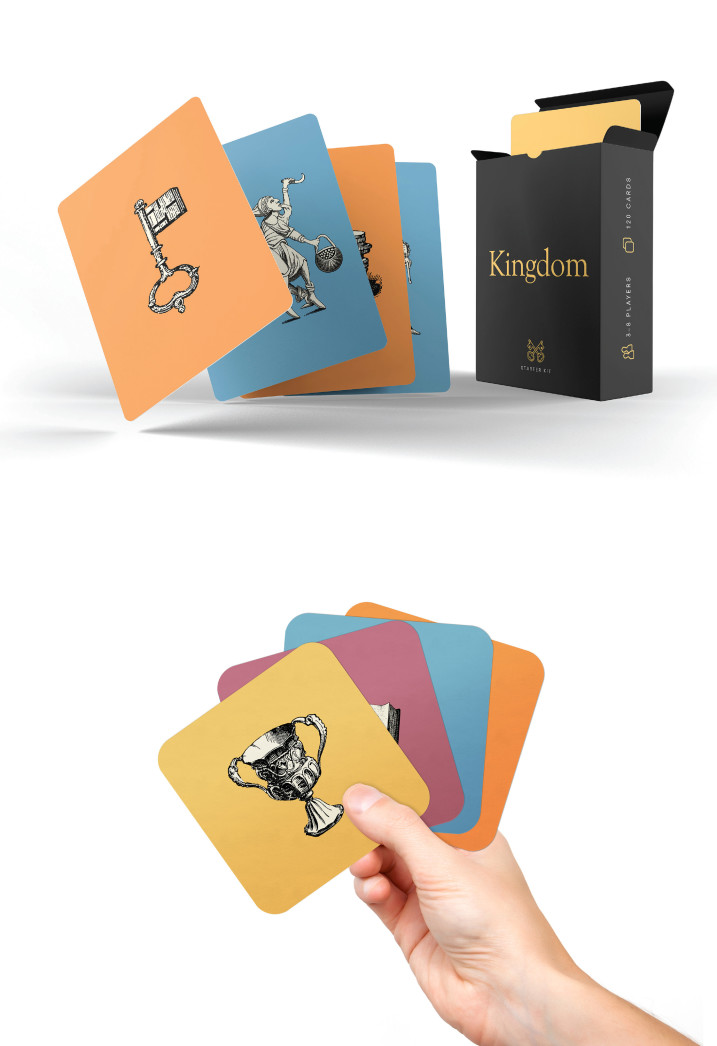
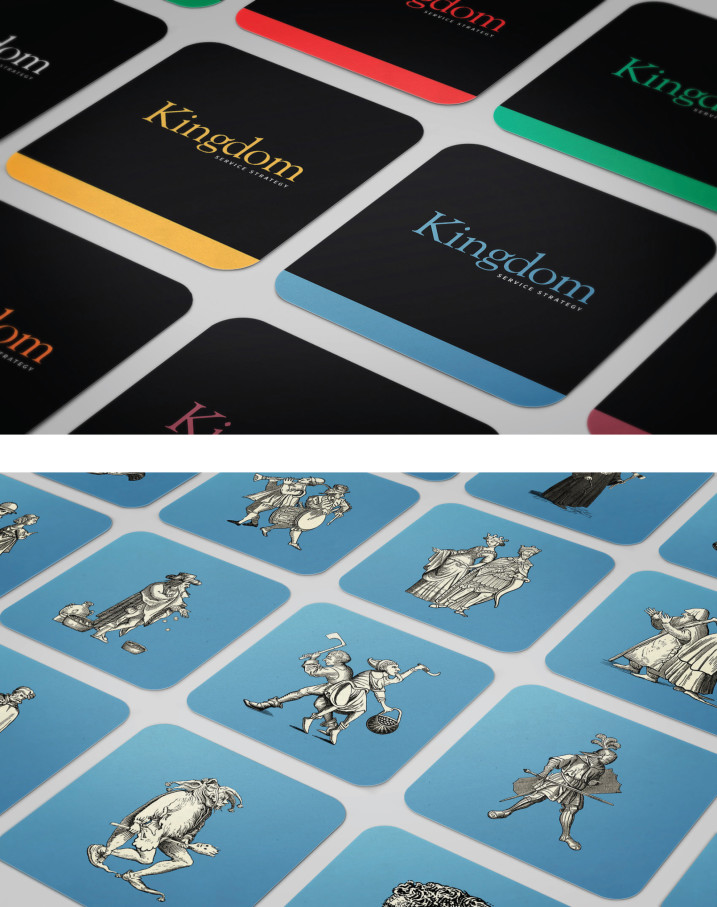
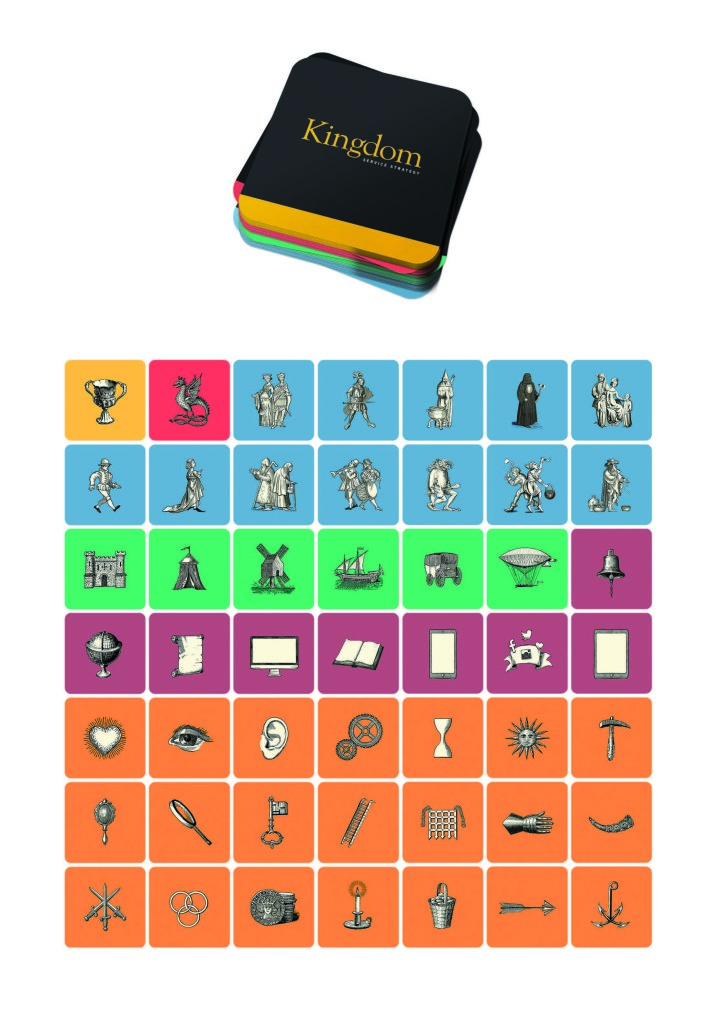
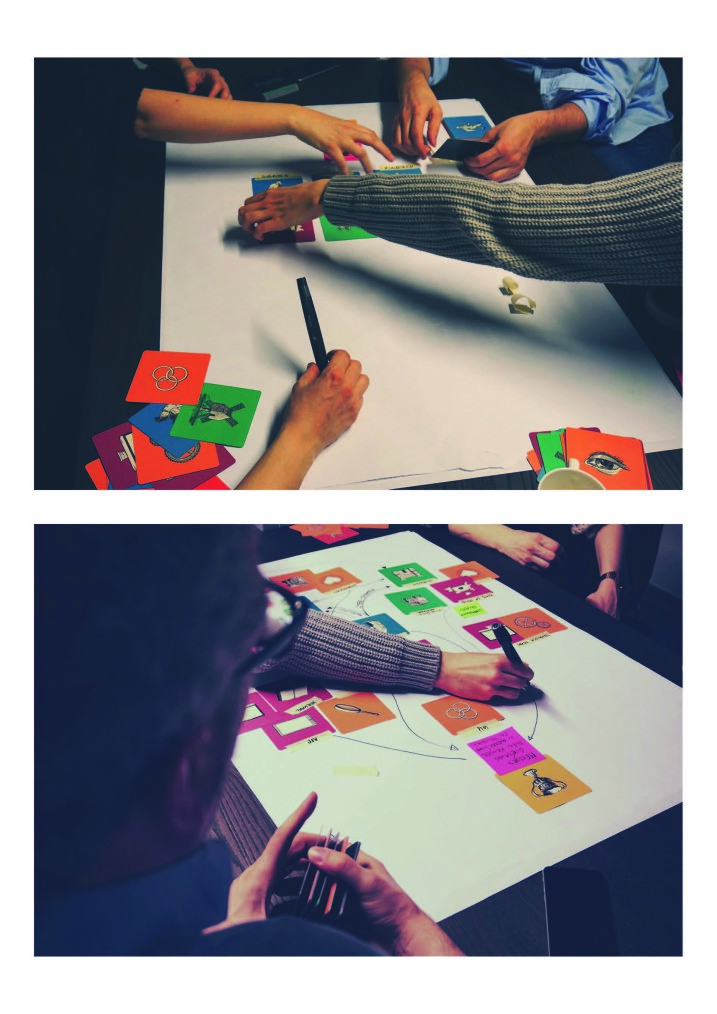
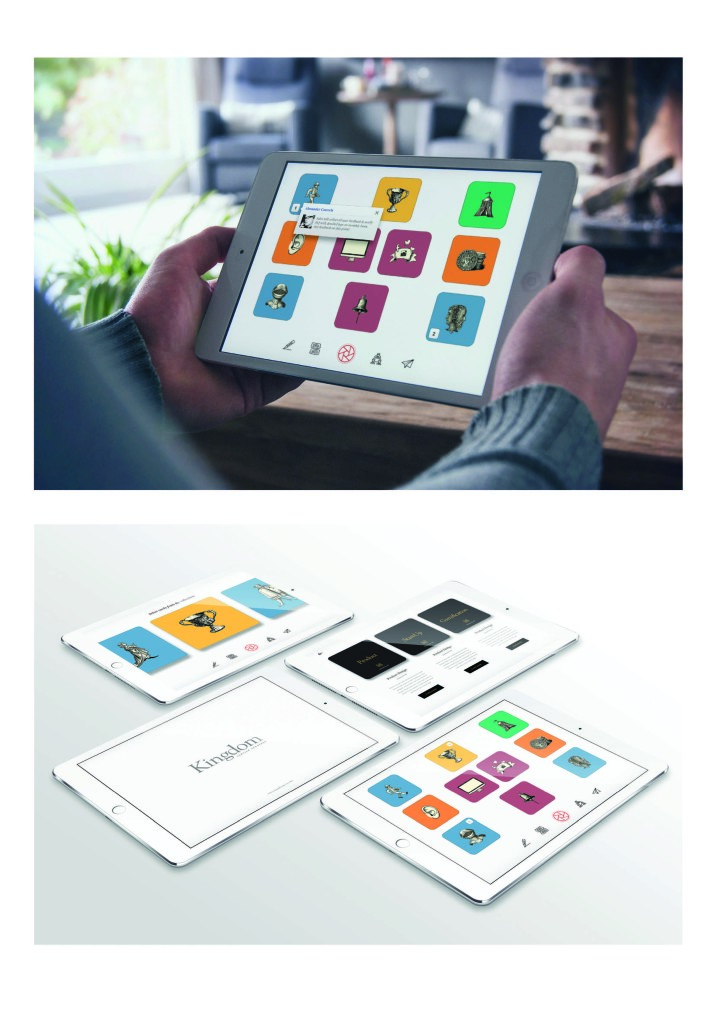
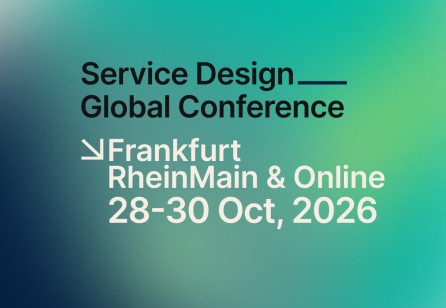
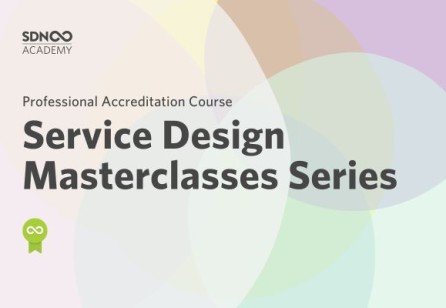
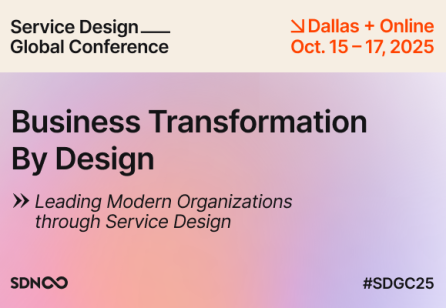
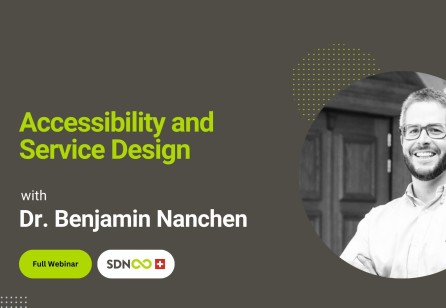

Share your thoughts
0 RepliesPlease login to comment